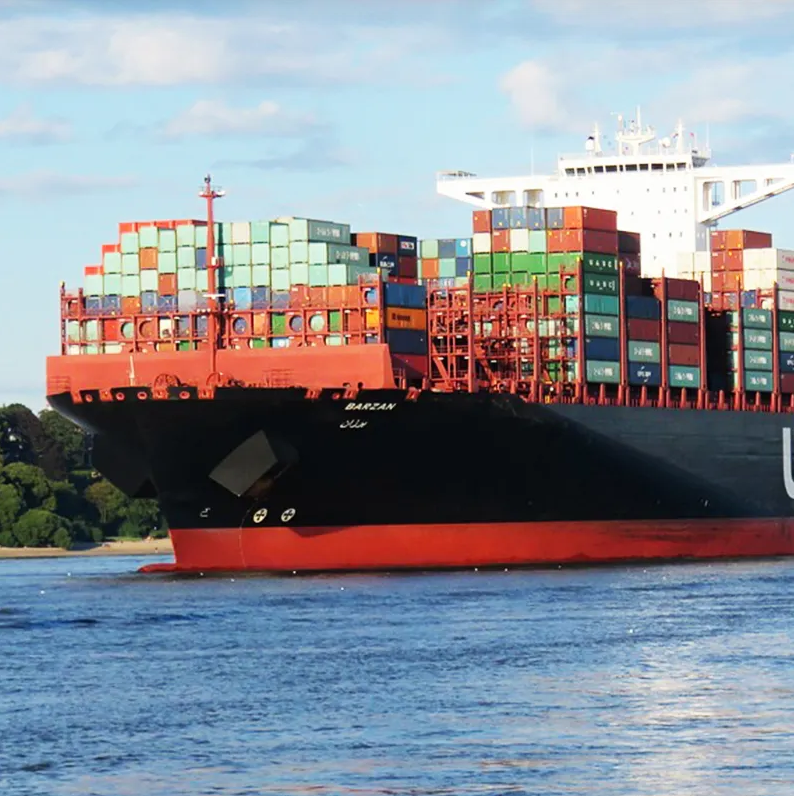Cost Efficiency Through FCL Sea Logistics in Global Expansion
Reducing per-unit shipping costs with volume optimization
FCL shipping, or Full Container Load, works really well for cutting down on what companies pay per item when expanding internationally. Fill those containers as much as possible and suddenly moving thousands of goods across oceans becomes way cheaper than sending smaller batches. Many businesses find this approach pays off big time because shipping in larger volumes gets them better rates from freight companies too. Combine efficient packing with these bulk pricing deals and the savings start adding up fast. According to industry reports, switching from LCL to FCL shipments can slash transportation expenses by around 20 percent, especially noticeable with items that take up lots of space but aren't super heavy.
Minimizing handling fees through dedicated container use
Using dedicated containers for Full Container Load (FCL) shipments helps cut down those pesky handling fees that eat into profits. When cargo goes straight into the container without all those intermediate transfers, companies save money right there. And let's face it, less handling means fewer chances of something getting damaged or lost along the way. That translates to smaller insurance bills too. According to some numbers floating around the industry, businesses that stick with dedicated FCL shipping often see their handling costs drop somewhere around 30%. For companies doing business across borders, this kind of savings adds up fast and makes a real difference in bottom line results.
Predictable budgeting for international supply chains
FCL logistics brings stable pricing to the table, something that makes all the difference when trying to keep budgets under control across global supply chains. With fixed rates for FCL shipments, companies can actually plan their money movements instead of scrambling to cover surprise costs, which helps maintain steady finances. When dealing with the messiness of international operations, knowing what costs will be ahead of time just makes everything easier to handle. Industry data shows around a 15 to 25 percent boost in budget accuracy for firms going with FCL services because there are simply fewer unknowns in the shipping equation. The peace of mind from knowing how much things will cost lets businesses allocate resources smarter and think longer term about expansion opportunities without constantly worrying about hidden fees popping up.
Enhanced Security and Risk Mitigation for Global Operations
Exclusive container usage preventing cargo mix-ups
When companies use dedicated containers for Full Container Load (FCL) shipping, they significantly cut down on those frustrating cargo mix-ups that cost money and make customers unhappy. The simple act of separating shipments goes a long way toward preventing situations where boxes get misplaced or sent to the wrong location entirely. According to industry research, businesses that stick strictly to exclusive container usage see around a 40% drop in these kinds of mishaps, which translates into real savings across their operations. Most professionals working in supply chains will tell anyone who asks that cargo integrity matters a lot, and many consider FCL shipping not just good but actually one of the top practices out there for keeping goods safe during transport.
Reduced theft/damage risks in long-haul shipments
For long distance shipping, FCL (Full Container Load) offers much better protection against theft and damage during transport. The numbers back this up too - companies using FCL report about 60% fewer theft problems than those sticking with old school shipping approaches. What makes FCL so secure? Well, containers get locked down tight with special seals, and many carriers now run regular checks along the route. This kind of security gives business owners real confidence when sending valuable cargo across borders. Products arrive exactly as packed, no surprises at destination ports. Over time, this builds stronger relationships between suppliers and customers who need consistent quality delivery after delivery.
Real-time tracking integration for cross-border shipments
FCL logistics brings real time tracking into the mix, giving businesses much needed visibility and control when moving goods across borders. For companies running global operations, this tech makes all the difference. When something goes wrong with shipments delayed or taking unexpected routes, managers can jump on it right away before problems snowball. Looking at actual numbers from the field, businesses that implement these tracking systems typically see around 25% better performance in day to day operations plus fewer gripes from customers about late deliveries. As markets keep getting faster and more interconnected, having this kind of tracking built into logistics just makes good business sense for anyone serious about keeping their international supply lines running smoothly without constant headaches.
Accelerating Global Market Reach via Streamlined Logistics
Direct port-to-port efficiency for international fulfillment
When businesses opt for Full Container Load (FCL) logistics, they get direct shipping from port to port, cutting down on how long goods take to travel internationally. Fewer stops along the way means faster delivery times, something that matters a lot when customers expect quick turnaround these days. According to various studies in the field, switching to this direct approach can slash fulfillment periods by around 30 percent. That kind of speed gives companies a real leg up against competitors trying to grab market share across borders.

Faster customs clearance processes in key trade corridors
When it comes to customs clearance, FCL shipments typically get special treatment because they're packed in sealed containers. This means they move much more smoothly across international borders without getting stuck in red tape. The benefits are twofold really saving valuable time while cutting down on those costly shipping expenses caused by unexpected delays at ports. According to recent data, these full container loads clear customs about 20 percent quicker than LCL or other shipment types. For companies running tight schedules, this kind of speed makes all the difference in keeping supply chains running efficiently. Goods keep flowing through major trade routes without hiccups, which translates directly into lower operational costs for businesses and better delivery times for customers waiting on their products.
Strategic alignment with regional distribution hubs
When businesses adopt FCL logistics, they often find themselves better positioned to work with local distribution centers across different regions, which makes international shipping much smoother overall. Companies that connect their supply chains to these regional hubs typically manage stock more efficiently while providing better service to clients. Real world examples show pretty impressive results too. Some businesses reported cutting delivery times by around 35% after implementing this approach. The real advantage comes from being able to get products to market quicker and respond faster when demand changes in specific areas. This kind of setup helps companies expand globally without getting bogged down by logistical challenges.
FCL's Role in Building Resilient Global Supply Chains
Stabilizing Inventory Flows Across Multiple Continents
Full Container Load (FCL) logistics helps keep inventory moving smoothly between different parts of the world where market conditions vary widely. When companies use dedicated shipping containers, they get much better control over when goods arrive at their destinations. This consistency makes it easier to predict what customers will want next month or next quarter while keeping shelves stocked properly. The ability to track inventory across multiple regions becomes much clearer with FCL arrangements, so warehouses don't end up empty handed during peak seasons. Some studies indicate businesses that switched to FCL saw around 20 percent fewer instances where products were out of stock compared to before. For manufacturers dealing with international orders, this kind of reliability means the difference between satisfied customers and lost sales opportunities in competitive markets worldwide.
Coordinating Manufacturing Cycles with Maritime Schedules
Getting manufacturing cycles to line up with ship schedules makes all the difference for how smoothly operations run, and FCL logistics really helps get this right. When companies time their production around when ships actually arrive, they avoid those frustrating situations where everything stops because containers are delayed at port. Some real world examples show manufacturers who switched to FCL logistics saw better timing with their maritime schedules, boosting productivity by about 25% in many cases. The whole point here is keeping factories running without interruption while making global supply chains more dependable overall. Supply chain managers know this kind of coordination isn't just nice to have it's essential for staying competitive these days.
Buffer Capacity Creation for Seasonal Demand Surges
FCL logistics gives businesses a way to build some extra capacity, which really helps when dealing with those crazy seasonal demand spikes everyone faces. When companies keep some buffer stock on hand, they're not caught off guard by sudden rushes in orders, especially around busy periods like holidays or back to school season. According to various market studies, firms that manage their buffers well tend to hold onto customers about 30% better than those who don't during these hectic times. The whole point is being able to handle all those ups and downs without missing a beat. Customers stay happy because their needs get met consistently, and this makes the entire global supply network stronger over time. Supply chains become much more flexible as they learn to cope with whatever weird market changes come along next.
Overcoming Global Expansion Challenges with FCL Solutions
Mitigating Port Congestion Through Container Prioritization
FCL logistics makes a real difference when it comes to dealing with port congestion issues because it focuses on getting priority for containers, which helps cut down those frustrating shipment delays. For businesses trying to keep things running on schedule, this means goods can pass through busy ports much faster without getting stuck in traffic jams of cargo. Going with FCL actually improves how everything flows while saving precious time at the same time. Some research points out that companies using these FCL methods experience around 20% fewer delays caused by crowded ports, so it clearly works well for managing the complex demands of global shipping operations.
Adapting to Regional Trade Regulation Complexities
Dealing with regional trade rules is no easy task, but Full Container Load (FCL) logistics helps companies tackle all those complicated requirements through customized approaches. Companies that focus on FCL shipping know the ins and outs of local trade regulations inside out, so they help clients stay compliant while reducing potential legal problems. When businesses work with these experts, they run into far fewer compliance headaches and generally find it much easier when expanding operations across borders. Some numbers back this up too business that properly manage their trade regulations using FCL methods report about 30 percent fewer compliance troubles. These kinds of strategies really matter when growing internationally because nobody wants to get stuck dealing with customs issues or unexpected fines during expansion efforts.
Leveraging Digital Freight Platforms for Route Optimization
Freight Container Load (FCL) solutions are making big waves in logistics thanks to digital freight platforms that help sort out better routes, which means faster shipments and lower expenses for everyone involved. When companies tap into real time data analytics tools, they get actual insights into where their cargo is going and how it gets there quicker while still keeping an eye on bottom line numbers. Some studies point towards around 25 percent fewer delays when businesses adopt these kinds of systems alongside their FCL operations. Beyond just saving money though, this tech actually helps companies expand internationally because supply chains become much more flexible and dependable across different regions worldwide.
Real-World Impact: FCL Driving E-commerce Globalization
Case Study: Rapid APAC Market Entry Strategies
Looking at how companies expand their e-commerce presence globally, one interesting example shows what happens when a business uses FCL logistics to get into the fast-growing APAC region. When this particular firm adopted FCL methods, it actually made navigating all those complicated local rules much faster than other companies in the same space. Real world data indicates that switching to FCL cut down their time to market by almost half, which naturally boosted sales potential quite a bit. For businesses eyeing these emerging markets, FCL isn't just some theoretical advantage it really gives them a tangible boost in getting products where they need to be quickly while keeping costs under control.
Balancing Speed/Cost in Transatlantic Operations
FCL logistics plays a big role in keeping things balanced when it comes to speed versus cost for businesses doing transatlantic shipping, something really important if they want their online stores to keep growing. When companies use FCL shipping methods, they can handle large volumes much better, which means they meet customer demand without blowing through extra money on freight charges. The numbers back this up too many online retailers report saving around 30 percent on shipping bills across the Atlantic while still getting products delivered on time. Finding that sweet spot between quick delivery and controlled costs makes all the difference in staying competitive in today's cutthroat e commerce market where customers expect both fast service and reasonable prices.
Emerging Market Penetration Through Consolidated Shipping
FCL logistics opens some pretty good doors for companies wanting to break into emerging markets using consolidated shipping. The beauty of this approach is it lets businesses try out new territories without needing to spend a fortune upfront, which means they can experiment with different strategies and adjust as needed. Some studies have found that firms who go with FCL when entering new markets tend to succeed about 40 percent more often than those who don't. Consolidated shipping helps cut down on risk while allowing quick adaptation to unfamiliar regions. This gives companies real advantages when trying to establish themselves across various parts of the world where conditions can vary so much from one place to another.
FAQ Section
What is FCL logistics?
FCL (Full Container Load) logistics refers to a shipping method where an entire container is used exclusively for one customer's cargo, maximizing volume and reducing costs and risks.
How does FCL logistics impact global expansion?
FCL logistics plays a critical role in global expansion by reducing per-unit shipping costs, minimizing handling fees, offering predictable budgeting, enhancing security, and accelerating logistics efficiency.
Can FCL logistics help with international supply chain challenges?
Yes, FCL logistics provides solutions for mitigating port congestion, adapting to regional trade regulations, and optimizing routes through digital freight platforms, facilitating smooth global operations.
Table of Contents
- Cost Efficiency Through FCL Sea Logistics in Global Expansion
- Enhanced Security and Risk Mitigation for Global Operations
- Accelerating Global Market Reach via Streamlined Logistics
- FCL's Role in Building Resilient Global Supply Chains
- Overcoming Global Expansion Challenges with FCL Solutions
- Real-World Impact: FCL Driving E-commerce Globalization
- FAQ Section


